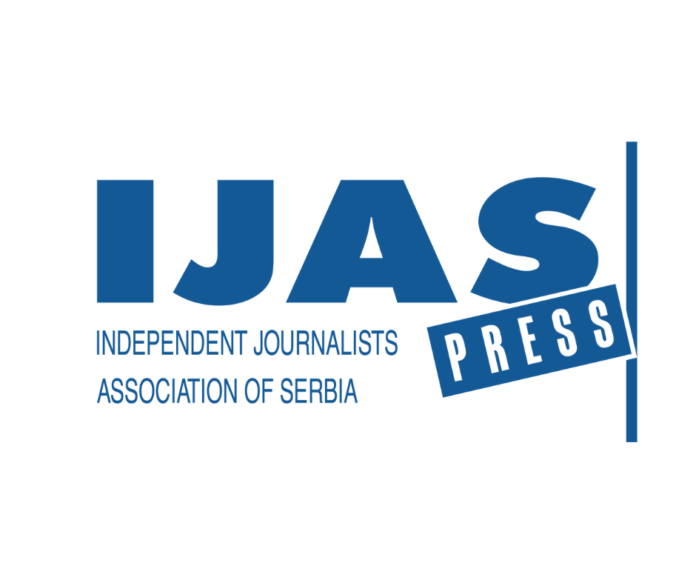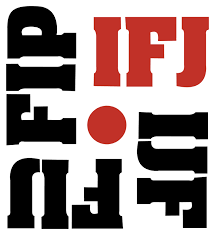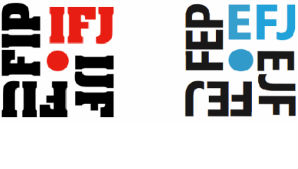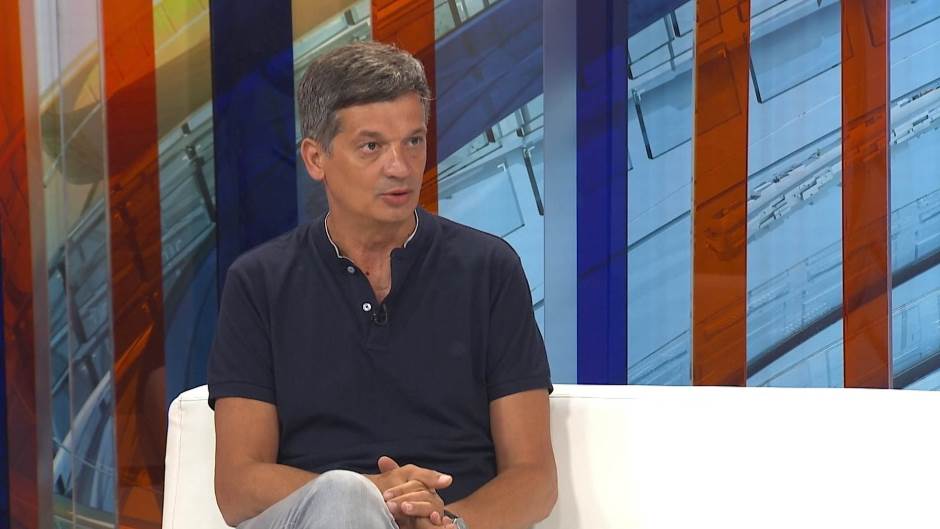Serbian Prime Minister Ana Brnabic met Tuesday with the representatives of the Information and Telecommunications Ministry, media and journalist associations and international partners on the occasion of the end of a public hearing on the Draft Law on Public Information and Media and the Draft Law on Electronic Media. The official information released by the Government was that a compromise has been reached, but those N1 spoke with do not share that opinion.
The Government said the Prime Minister pointed out that a compromise was reached on the most important issues regarding the implementation: the Press Council and the election of members of the Regulatory Body for Electronic Media (REM).
It said that she specified that the Press Council will be a self-regulatory body responsible for all media and that this is the first time that it will be part of the legislative framework. She emphasized that these laws are revolutionary, because self-regulation is being introduced for the first time.
Brnabic assessed that an excellent job has been done and that she expects both laws to be adopted by the end of October.
The statement further said that OSCE and European Union (EU) Delegation welcomed the passage of new media laws.
Only the Prime Minister knows the content of media laws
However, representatives of journalist and media associations told N1 that none of them have seen the final versions of the draft laws and that they fear they will learn about their content only a day after they are adopted.
Dr Sasa Mirkovic, Association of Independent Electronic Media (ANEM) representative with the Working Group for the Drafting of Media Laws told N1 that, as a direct participant, he is not entirely certain that the word “compromise” best describes the Tuesday meeting held at the Serbian Government.
“The same goes for the information that speaks of the ‘satisfaction of representatives of journalist and media associations with the compromise reached on the basis of a public hearing on media laws,’ an impression from the aforementioned meeting we do not all share. During the meeting representatives of journalist and media associations did not get a chance to see the versions of the two draft media laws after the changes made to them following the public hearing, so all we could do was base the discussion on what Prime Minister Brnabic said about parts of the future laws that were the most disputed in the past period,” Mirkovic explained.
He added that the explanation they got regarding the future legal wording in connection with the Press Council was that it will not be a version of the article they voted in favor of at the Working Group for Changes to the Law on Public Information a few months ago, but that it will be something along the lines of what was already envisaged by the 2016 Rulebook on co-financing of projects for the realization of public interest in the area of public information, so far implemented only at the republic level.
“We failed to get a clear answer yesterday as to why the proposer of the law keeps avoiding a solution under which, in the future Law on Electronic Media, one of the proposers of REM Council members would also be the Commissioner for Information of Public Importance and Personal Data Protection (who is of great importance for the media’s everyday work), if this right was granted to the Ombudsman and to the Commissioner for Protection of Equality. We also failed to agree on the use of the term “unconstitutionality” regarding the repeated appointment of REM Council members (following the adoption of the new Law on Electronic Media), which is envisaged by the Government’s Media Strategy,” said Mirkovic.
In order for something to be formally unconstitutional, it should be declared as such by the Constitutional Court, which is not the case, he explained.
“The negative position of the Republic Secretariat for Legislation on this matter is now debatable because, at the beginning of 2020, this government body approved the adoption of the Media Strategy that envisages a so-called “reset” of the REM following the adoption of the new law, which has now been decided against,” said Mirkovic.
“Media extras in a state performance?”
Executive Director of the Media Association Izabela Brankovic told N1 that the impression one may get following the official Serbian Government statement from the Tuesday meeting is that an agreement has been reached on all the disputed points in the two media laws.
“Actually everyone should know that we have not yet seen the reports from the public hearings, so we don’t know what else could have contributed to better legal solutions. The only thing we know for certain, and I note that I am speaking on behalf of the Coalition for Media Freedom, is that we worked intensively, through the working group, with the other colleagues, coordinated and proposed amendments for the best solutions, we also organized three additional public hearings with the owners and editors of media in Nis, Novi Sad and Belgrade,” said Brankovic.
She stressed that, since they did not have access to the final text of the laws, they do not know which of their requests and experts’ proposals the Government representatives accepted, thus that it would be out of place for her to comment on something that they, as media representatives, had no access to.
“Therefore, we cannot agree with the form of the statement ‘we have harmonized positions and reached a compromise on key issues,’ as the Prime Minister said. Everyone knows that this job should have been done by the end of 2022, rather than opting for an emergency procedure at end of 2023. Responsibility for the idling lies on the state bodies, which, according to a pattern we have all seen before, delayed for as long as they could, and then suddenly, under pressure exerted from the outside,” said Brankovic.
She also wonders – doesn’t it seem strange that we will see the official documents from public hearings and the final versions of the draft laws only in the final act, when the relevant state body decides on its status.
“And finally, I am afraid that in this whole project, from start to finish, we were media extras in a state performance with a well-known set design. We will not give up, all the more so since we are aware that the most difficult battle is yet to come: the implementation of the law. As for what law, that we will see, unfortunately, only on the day of the vote,” said Brankovic.
“The Prime Minister reached an agreement with herself”
President of the Independent Journalists Association of Serbia (NUNS) Zeljko Bodrozic said the one thing that is true is that the Serbian Government partly reached a compromise with itself, that is, that it reincorporated into the Law some of what it defined when adopting the Media Strategy a few years back.
“The draft Draft Law on Public Information and Media produced by the Working Group, which also comprised representatives of media associations and unions, was redone in the Ministry and, as such, submitted for public hearing. We clearly expressed our discontent and demanded that the Media Strategy and the initial Draft be respected. We still retain the same positions and they are not subject to compromises and agreements. These things are not subject to bargaining,” stressed the NUNS President.
Now, the fact that the Prime Minister believes that a few changed formulations in some of the articles means she is making a compromise, that’s her opinion, he added.
“I think she only partly made a compromise with herself a few years ago, when the Media Strategy was adopted as a basis for future media laws, and when commendations and positive assessments came from the European Union. I hope that, before the legislation is adopted, the Prime Minister will fully align with herself from a few years back when she signed a document that clearly detected the problems and anomalies in the media sphere and announced that these problems would be resolved and anomalies eliminated in future laws,” said Bodrozic.
The current Law on Public Information and Media envisages the measure of mandatory privatization of all media publishers whose founders are entities in which the state is a majority or a minority owner. The same law also lists exemptions from mandatory privatization, solely referring to public services at the national and provincial level, institutions for the exercise of the right to public information of the population in the territory of the autonomous province of Kosovo and Metohija, entities whose founders are national councils of national minorities that publish media providing information in the languages of national minorities.
he Law on Public Information and Media explicitly stipulates that media outlets may not be founded, either directly or indirectly, by the Republic, an autonomous province or local self-government unit, or by an institution or company or other legal entity, which is partly or fully state-owned (not “publicly owned”) or which is partly or fully funded from public revenues, except in the cases provided for in Article 16 of this Law.
Despite the aforementioned legal prohibitions, in the past period some state entities founded media, directly or indirectly, with the relevant ministries’ and regulatory bodies’ tacit or even explicit support.
A precedent was made prior to the passage of new media laws, back in 2012, in violation of the explicit legal bans, when the then Republic Broadcasting Agency (RRA) issued a license to Arena Sport channels. The provisions of Article 14, paragraph 3 of the then Law on Public Information stipulated that public media cannot be founded, either directly or indirectly, by the state or a territorial autonomy, or by an institution or company or other legal entity, which is predominantly state-owned or which is fully or predominantly funded from public revenues, unless such a possibility is envisaged by a separate broadcasting law.










